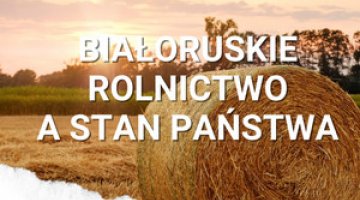Belarus: a wave of repression against journalists and civil society organisations
On 18 February the court sentenced two TV Belsat journalists - Katsiaryna Bakhvalava (her pseudonym is Andreyeva) and Darya Chultsova – to two years of penitentiary colony for ‘organising actions which seriously infringe public order’ (art. 342 of the Penal Code). The court ruled that on 15 November 2020 the journalists in fact led protesters, while covering a demonstration live online held in the place where an activist, Raman Bandarenka, had been beaten to death three days earlier.
On 16 February Ministry of Internal Affairs officers carried out searches in the homes and offices of over ten to twenty independent journalists, social activists, trade union activists and human rights defenders (the Human Rights Centre ‘Viasna’). These measures were targeted above all at the management and selected members of the independent Belarusian Association of Journalists. Computers and audio-visual equipment were confiscated. The Investigative Committee justified these actions by reference to an investigation which is being conducted into the illegal funding of post-election anti-regime demonstrations, an offence which leads to imprisonment of up to three years. Following the investigation into financing the protests and supporting the victims of repression, the Minsk-based office of an independent news agency, BelaPAN, was also searched in January. Furthermore, on 19 January the court returned a verdict to deprive one of the most popular Belarusian news websites (visited by approximately 70% of Internet users in Belarus) Tut.by of its media outlet status. This decision deprives Tut.by staff of the right to work as journalists, and in consequence it makes it impossible for them to obtain official accreditation and exposes them to more severe legal implications, for example when they cover street protests. Already in December five employees of ‘Press-Club’, a centre of independent debate and training for journalists, were detained, among them the centre’s president, Yulia Slutskaya, on charges of tax evasion.
Since the beginning of the year Belarusian courts have reached dozens of verdicts with sentences of severe imprisonment (on average from two to five years) for participants of the previous year’s post-election demonstrations. At present further trials are underway, including one which started on 17 February, involving Viktar Babaryka, Alyaksandr Lukashenka’s main rival in the presidential campaign and former president of Belgazprombank. Babaryka is accused of embezzlement of the bank’s funds and corruption, which is punishable by up to 15 years of imprisonment.
Commentary
- Repression against participants of the demonstrations held in 2020 and representatives of civil society organisations are intended to demonstrate the force of the Belarusian regime. After quashing a wave of unprecedented protests following the fixed presidential election Lukashenka has been consolidating the security apparatus since autumn 2020 and tightening the police state system which is currently the main pillar of his rule. The legal basis for a further increase in the scale of repression will be provided by amendments to the penal and administrative codes and of the labour law and electoral system, all of which are underway. They are set to be published and come into force by the end of March this year. Severe sentences for the protesters are meant to act as a deterrent, ahead of the expected resumption of street protests in spring, and to preventatively deter and discourage the most active opponents of the regime from taking action.
- The measures undertaken by the regime particularly hit independent journalists who have been providing Belarusian citizens with wide access to news on developments in the country, and on infringements of the law which the law enforcement agencies have committed since the beginning of the political crisis. From the Belarusian government’s point of view, legal restrictions and repression (including excessively severe sentences) targeted at the independent media should eventually make their work difficult or even block it, thus making it easier to control the protests in Belarusian society.




